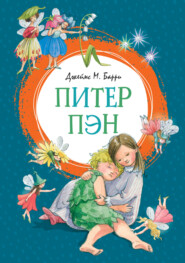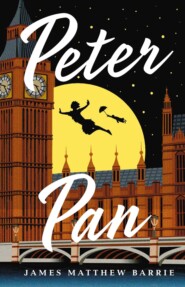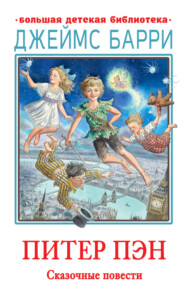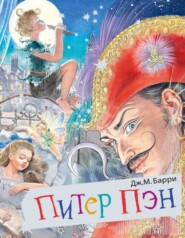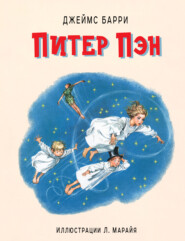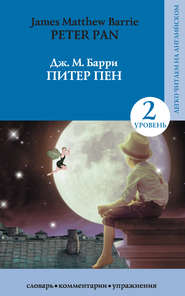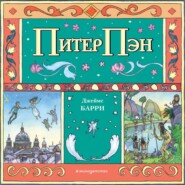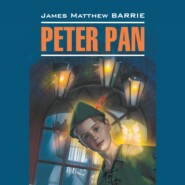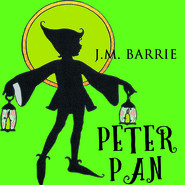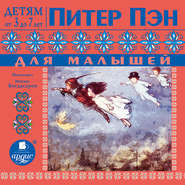По всем вопросам обращайтесь на: info@litportal.ru
(©) 2003-2024.
✖
When a Man's Single: A Tale of Literary Life
Автор
Год написания книги
2017
Настройки чтения
Размер шрифта
Высота строк
Поля
While Colonel Abinger sat in the heather, perturbed in mind, and trying to persuade himself that it was Mary's fault, the pedestrian drew near rapidly. Evidently he and the rider would meet near the schoolhouse, and before the male rider, who had again emerged from the clump of trees, could make up on his companion.
The dominie, who did not have such a slice of the outer world as this every day, came to the end of his path to have a look at the persons who were nearing him from opposite directions. He saw that the pedestrian wore an elegant silk hat and black coat, such as were not to be got in these parts. Only the delve with which he walked suggested a man from Thrums.
The pedestrian made a remark about the weather as he hurried past the dominie. He was now so near the colonel that his face could be distinctly seen through the field-glass. The colonel winced, and turned white and red. Then the field-glass jumped quickly to the horsewoman. The pedestrian started as he came suddenly in sight of her, and at the same moment her face lit up with joy. The colonel saw it and felt a pain at his heart. The glass shook in his hand, thus bringing the dominie accidentally into view.
The dominie was now worth watching. No sooner had the pedestrian passed him than the old man crouched so as not to seem noticeable, and ran after him. When he was within ten yards of his quarry he came to rest, and the field-glass told that he was gaping. Then the dominie turned round and hurried back to the schoolhouse, muttering as he ran:
'It's Rob Angus come home in a lum hat, and that's one o' the leddies frae the Lodge. I maun awa to Thrums wi' this. Rob Angus, Robbie Angus, michty, what a toon there'll be aboot this!'
Rob walked up to Mary Abinger, feeling that to bid her good afternoon was like saying 'Thank you' in a church when the organ stops. He felt himself a saw-miller again.
The finest thing in the world is that a woman can pass through anything, and remain pure. Mary had never been put to the test, but she could have stood it. Her soul spoke in her face, and as Rob looked at her the sound of his own voice seemed a profanation. Yet Mary was not all soul. She understood, for instance, why Rob stammered so much as he took her hand, and she was glad that she had on her green habit instead of the black one.
Sir Clement Dowton rode forward smartly to make up on Miss Abinger, and saw her a hundred yards before him from the top of a bump which the road climbs. She was leaning forward in her saddle talking to a man whom he recognised at once. The baronet's first thought was to ride on, but he drew rein.
'I have had my chance and failed,' he said to himself grimly. 'Why should not he have his?'
With a last look at the woman he loved, Sir Clement turned his horse, and so rode out of Mary Abinger's life. She had not even seen him.
'Papa has been out shooting,' she said to Rob, who was trying to begin, 'and I am on my way to meet him. Sir Clement Dowton is with me.'
She turned her head to look for the baronet, and Rob, who had been aimlessly putting his fingers through her horse's mane, started at the mention of Sir Clement's name.
'Miss Abinger,' he said, 'I have come here to ask you one question. I have no right to put it, but Sir Clement, he – '
'If you want to see him,' said Mary, 'you have just come in time. I believe he is starting for a tour of the world in a week or so.'
Rob drew a heavy breath, and from that moment he liked Dowton. But he had himself to think of at present. He remembered that he had another question to ask Miss Abinger.
'It is a very long time since I saw you,' he said.
'Yes,' said Mary, sitting straight in her saddle, 'you never came to the house-boat those last weeks. I suppose you were too busy.'
'That was not what kept me away,' Rob said. 'You know it was not.'
Mary looked behind her again.
'There was nothing else,' she said; 'I cannot understand what is detaining Sir Clement.'
'I thought – ' Rob began.
'You should not,' said Mary, looking at the schoolhouse.
'But your brother – ' Rob was saying, when he paused, not wanting to incriminate Dick.
'Yes, I know,' said Mary, whose intellect was very clear to-day. She knew why Rob stopped short, and there was a soft look in her eyes as they were turned upon him.
'Your brother advised me to come north,' Rob said, but Mary did not answer.
'I would not have done so,' he continued, 'if I had known that you knew why I stayed away from the house-boat.'
'I think I must ride on,' Mary said.
'No,' said Rob, in a voice that put it out of the question. So Mary must have thought, for she remained there. 'You thought it better,' he went on huskily, 'that, whatever the cause, I should not see you again.'
Mary was bending her riding-whip into a bow.
'Did you not?' cried Rob, a little fiercely.
Mary shook her head.
'Then why did you do it?' he said.
'I didn't do anything,' said Mary.
'In all London,' said Rob, speaking at a venture, 'there has not been one person for the last two months so miserable as myself.'
Mary's eyes wandered from Rob's face far over the heather. There might be tears in her eyes at any moment. The colonel was looking.
'That stream,' said Rob, with a mighty effort, pointing to the distant Whunny, 'twists round the hill on which we are now standing, and runs through Thrums. It turns the wheel of a saw-mill there, and in that saw-mill I was born and worked with my father for the greater part of my life.'
'I have seen it,' said Mary, with her head turned away. 'I have been in it.'
'It was on the other side of the hill that my sister's child was found dead. Had she lived I might never have seen you.'
'One of the gamekeepers,' said Mary, 'showed me the place where you found her with her foot in the water.'
'I have driven a cart through this glen a hundred times,' continued Rob doggedly. 'You see that wooden shed at the schoolhouse; it was my father and I who put it up. It seems but yesterday since I carted the boards from Thrums.'
'The dear boards,' murmured Mary.
'Many a day my mother has walked from the saw-mill into this glen with my dinner in a basket.'
'Good mother,' said Mary,
'Now,' said Rob, 'now, when I come back here and see you, I remember what I am. I have lived for you from the moment I saw you, but however hard I might toil for you, there must always be a difference between us.'
He was standing on the high bank, and their faces were very close. Mary shuddered.
'I only frighten you,' cried Rob.
Mary raised her head, and, though her face was wet, she smiled. Her hand went out to him, but she noticed it and drew it back. Rob saw it too, but did not seek to take it. They were looking at each other bravely. His eyes proposed to her, while he could not say a word, and hers accepted him. On the hills men were shooting birds.
Rob knew that Mary loved him. An awe fell upon him. 'What am I?' he cried, and Mary put her hand in his. 'Don't, dear,' she said, as his face sank on it; and he raised his head and could not speak.
The colonel sighed, and his cheeks were red. His head sank upon his hands. He was young again, and walking down an endless lane of green with a maiden by his side, and her hand was in his. They sat down by the side of a running stream. Her fair head lay on his shoulder, and she was his wife. The colonel's lips moved as if he were saying to himself words of love, and his arms went out to her who had been dead this many a year, and a tear, perhaps the last he ever shed, ran down his cheek.
'I should not,' Mary said at last, 'have let you talk to me like this.'






